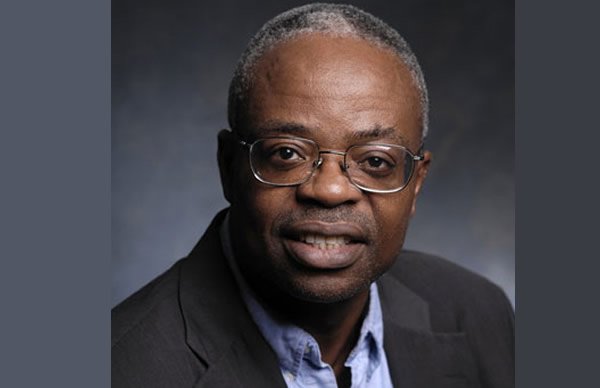
Cases of elected officials losing their jobs when courts rule that their election resulted from irregularities have become rather common. Now there could be a case of a pair losing their jobs because of defection to another party. If the ruling of an Abuja high court stands on appeal, Ebonyi State Governor David Umahi and his deputy, Eric Kelechi Igwe, will make that history.
In the simplest terms, the case raises the question: When voters cast their votes for a candidate, are they voting for the individual or for the party? It is a question that is pertinent to all electoral offices, but especially so for governors because of their enormous executive powers. It is also a question that points to the difficulty of running a democracy when the principals are parochial in their civic inclination.
The first time that a defection caused a political convulsion in the current dispensation was in 2014. That was when then Speaker of the House of Representatives, Aminu Tambuwal, defected from the Peoples Democratic Party to the All Progressives Congress. It was part of the wave of defections that culminated in the election of the President, Major General Muhammadu Buhari (retd.).
PDP chieftains sought then to strip Tambuwal of the leadership position,arguing that as the majority party, they put him there. Technically, however, the PDP merely nominated him for the position. It was the House as a whole that voted to make him the Speaker. And so long as that House wanted him to remain the Speaker, he would remain. So, that resulted in the oddity that the Speaker of the House belonged to the ostensible minority party – ostensible because quite a few of the legislators had already become APC members in their hearts, though not yet on paper.
The case of governors is quite different, however. In their lawsuit seeking to replace Umahi and Igwe, the PDP argued that they were elected by voters under the banner of the PDP. They may not, in effect, take the offices with them to another party, the PDP argued.
Justice Inyang Ekwo agreed. By defecting to the APC, Umahi and Igwe were, in effect, transferring the 393,042 votes cast for them in 2019 from the PDP to the APC, and that is illegal, Justice Ekwo ruled. And so, Umahi and Igwe must vacate their offices.
Predictably, Umahi begged to differ. And he differed in the kind of intemperate language that undercuts the democratic order.
“In the first place, there is no constitutional provision for any hatchet man to remove a governor,” Umahisaid at a news conference. “There are three ways whereby a governor can vacate his office: it’s either by death, resignation and impeachment. There is no other constitutional provision that empowers a hatchet man to turn the Constitution upside down.”
Thus, in one swoop, Umahi combined the language of a bar room brawl with that of judicial reasoning. The latter by itself would have served him much better. In any case, Umahi could have conceded that the constitution does not directly answer every legal question. In ruling on such cases, judges sometimes fuse Solomonic wisdom with the letter of the law. And democratic ethos calls for the assumption of good intentions and not the expression of inciting words.
Not surprisingly, the Nigerian Bar Association has weighed in in Justice Ekwo’s defence, calling on Umahi to apologise to him and withdraw the offensive characterisation.
“We view Engr. Umahi’s reaction to this judgment as being consistent with the current penchant, on the part of those in the executive arm of government, for intimidating the judiciary whilst taking advantage of the historical reluctance of that arm of government to rise to its own defence,” the NBA said in a statement.
The intemperate words aside, Umahi might be right that Justice Ekwo exceeded his judicial authority. But that’s for the appellate courts to decide. Umahi has rightfully appealed the ruling, and soon we will know whether, indeed, he and his deputy must go. Whatever the outcome, there are a number of options for avoiding such collisions in the future. The easiest one is contractual within the political parties. Each party may have candidates sign a binding agreement that they would not defect to another party until the end of the term they are contesting for. And that if they want to defect, they must first resign from the office.
The other option is via national statutory action. The National Assembly could take up the matter of defections and legislate as suggested above. And, if necessary, there is the option of adding the stipulation to the constitution. This might not be the best option given that constitutions are best left as uncluttered as possible.
At any level the stipulation is implemented, it will help to solve a number of problems. In the first place — given the allure of political offices — not too many office holders, especially governors, would defect while in office. This would go beyond preempting the problem that Justice Ekwo is seeking to redress through judicial intervention.
Moreover, it might help to stabilise the political parties, which are in considerable turmoil. Surely, that turmoil reflects that of the polity in general. Yet stabilising the parties might help to stabilise the country.
Ukraine: Is WWW III here?
Bill Ackman, an American billionaire and hedge fund manager, declared on Saturday that World III may have started with the Russian invasion of Ukraine. “WWIII has likely started already, but we have been slow to recognise it,”Ackman said in a tweet quoted by the New York Post.
Signs of that Armageddon include the declaration by Belarus that they would be sending troops into Ukraine to help Russia and Poland’s decision to donate their fleet of Soviet-era jet fighters to Ukraine. That would entail flying combat planes into an airspace that is currently dominated by Soviet jet fighters. The dangers are too obvious, given that Poland is a member of NATO. And so, the US has essentially vetoed the plan.
Meanwhile, Ukraine’s President Volodymyr Zelensky is fervently pleading with NATO to declare and enforce a no-fly zone over its airspace. That’s even more dangerous as it would constitute a direct challenge to Russian jet fighters, whichwould inevitably lead to arial combat. And so, NATO has declined.
Yet, the danger of escalation remains. Ackman thinks that only China — whom the Russians respect — can save the day. “The only optimistic way I can see out of this war is for China to step in and broker a real ceasefire and a settlement,” he said. “In the settlement, the Ukrainians could agree that they will never join NATO. Russia, in turn, can withdraw and the sanctions can be reversed.”
There are at least three hurdles to the optimism. To begin with, so much blood has been shed and damage done. Two, Ukraine has already rejected the idea of abandoning the quest to join NATO. Furthermore, the Chinese have their own plan to invade Taiwan for reasons much like Russia’s. Are they willing to undercut their case by pressuring Russia to leave Ukraine?
Was it Toots & the Maytals who sang “Time Tough”?
Copyright PUNCH.
All rights reserved. This material, and other digital content on this website, may not be reproduced, published, broadcast, rewritten or redistributed in whole or in part without prior express written permission from PUNCH.
Contact: [email protected]





